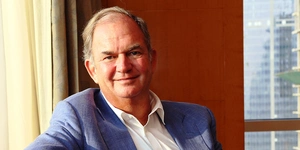“You cannot predict the future, but you can create it” said Drucker. For the healthcare and pharmaceutical industry, this is more relevant today than ever.
It took 300 years for germ theory to translate into antiseptic treatment. It took 30 years from the discovery of immune cells to translate into some of the most efficacious treatments against cancer. And it took just 10 months to create a vaccine for a global pandemic.
Today we stand on the cusp of a metamorphosis in medicine – where science, technology, artificial intelligence and computing power interact and intersect to diagnose, treat and shape the next stage of the future of humanity.
It has been a long time coming, but 2022 will mark the year of incubation for the technological advancements that will shape the personalisation of healthcare and therapies for the next five decades.
What could change in the next 5 years? 2022 is the foundation year for an unprecedented amount of collaborative research and innovation. As we move ahead, an integrated healthcare industry will create new ways to diagnose patients; prevention will actually become the cure; and technology will provide unprecedented levels of patient information, making it easier than ever before to find therapies to treat individual-specific conditions, or even specific individuals.
In the next decade, global healthcare will blur the lines between different segments, and even sectors. The traditional distinction between different parts of the healthcare industry – clinical practice, diagnostics, devices and pharmaceuticals has already begun to disappear. So will the barriers between innovators, service providers and technologists.
Digital health is already changing the face of diagnosis and drug discovery. In the future, new healthcare platforms will provide remote care to patients, smart sensors will monitor body chemistry and vital signs, and identify potential disease risk. Manufacturing technology will be increasingly refined and complex – but not complicated.
That artificial intelligence (AI) and machine learning (ML) will accelerate along the spectrum of healthcare is a given. Robotics and virtual reality have already begun and will continue to aid doctors in the operation theatre to conduct surgery with much higher precision. Sensors monitoring vital signs, triggering alerts and even treatment are already making their mark.
I am personally energised knowing that the quality of healthcare could improve exponentially, not just for the richest of nations but for all. New drug discovery will be faster than ever – it won’t take the 10 years it used to; nor will it be the province of a few famous companies or a few nations.
Moving further along the timeline into the future, possibilities become probabilities. So much of what we see today is the science fiction of a decade ago. Over the next decade, the first human organs would be grown in a lab. With advancements in nanomedicine, scientists will be able to manipulate cells at a molecular level.
As a society, greater access to healthcare will move from being not just a product of lack of poverty, to actually being an enabler to end poverty.
Tomorrow holds both power and promise. This journey into tomorrow begins today. As a German thinker once said, “Whatever you can do or dream you can, begin it; Boldness has genius, power, and magic in it”.










Leave a Comment
Your email address will not be published. Required field are marked*